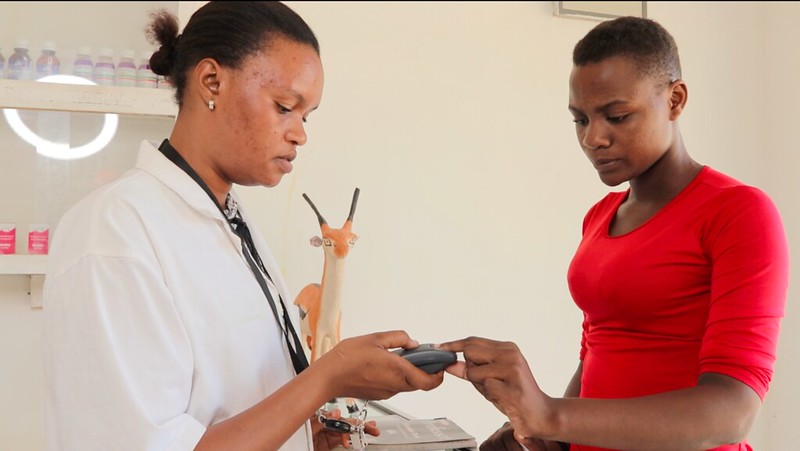Accredited Drug Dispensing Outlets, ADDOs, in Tanzania have already had a huge impact on access to affordable medicine and quality healthcare, but we believe there is more we can do, to save lives and improve the health and wellbeing of the people in remote communities in Tanzania.
The healthcare system in Tanzania is facing significant challenges with limited allocation of resources. This is resulting in more than 600,000 preventable deaths for under-five-year-olds, 1.2 million unintended pregnancies (including 26% of adolescent girls aged 15-19), and 9,000 preventable maternal deaths each year. The ADDOs are an essential part of the healthcare system in Tanzania, providing people in rural communities with lifesaving affordable, quality medicines and health services.
ADDOs in Tanzania, and drug shops in many other low and middle-income countries, are often the first point of contact for healthcare. An analysis of recent Demographic and Health Surveys data from 36 low and middle-income countries, found that 41 percent of women bought their contraceptives at pharmacies or drug shops and a study from Tanzania shows that about one-third of Tanzanians with acute illness go to an ADDO for their first treatment.

ADDOS, community health workers and health facilities are all central to improving community health in Tanzania. Through our flagship program Afya-Tek, we work closely with Apotheker to improve the formal linkages between these actors. Through leveraging digital technologies, we are joining the dots between every point of contact to create a seamless experience that changes the way people experience care. We are digitally bringing together the public and private sectors for the first time, sharing patient information safely from end to end, and empowering health workers on the ground to support patients along their whole healthcare journey.
With ADDOs playing such an important role in Tanzanian’s healthcare experience, we see the potential to expand their role and impact to help achieve health for all.
Non-communicable diseases: raising awareness and initiating screening
We see big potential for ADDOS to work closely with community health workers to raise awareness about non-communicable diseases, encourage screening when people are experiencing symptoms and remind community members about medicine refills when diagnosed. We have seen impactful examples of community health days in different districts in Tanzania and if these health days would happen in collaboration with and near ADDOs, we believe the impact could be even greater.
Saving lives with health data
With over 17,000 countrywide, ADDOs can provide valuable data. Knowing the demand for basic essential drugs is crucial to ensure a consistent supply, but the data can also provide us with important insights on common diseases prevalence, drug-seeking behavior and antimicrobial resistance – information that can help actors shape their efforts to be more effective and ultimately save more lives.
Efficient and effective treatment for diarrhea in babies and children
Oral rehydration salts are considered a significant medical innovation. They have saved the lives of many babies and children around the world and from 2000 to 2019, the annual number of deaths globally because of childhood diarrhea reduced by 61 %. But the positive impact could be even greater if the salts would be co-packed with zinc. This is not happening consistently yet in Tanzania and we believe that ADDOs can play a crucial role in this.
The government of Tanzania has scaled the ADDO program nationally, and there are now over 17,400 shops accredited. We are excited about the second phase of Afya-Tek, where we want to continue to strengthen ADDOs and set a stage for scale Afya-Tek nationally. New partnerships and funding, will allow us to build on the success of Afya-Tek and ADDOs to accelerate impact to help achieve health for all Tanzanians. If you are interested in a potential partnership, please get in touch.
Sign up for our newsletter and follow us on LinkedIn and Twitter to stay updated about Afya-Tek!
